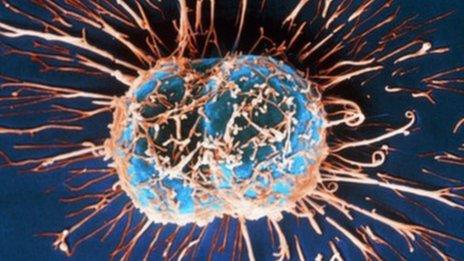Smear test awareness campaign as attendance at 10-year low
- Published
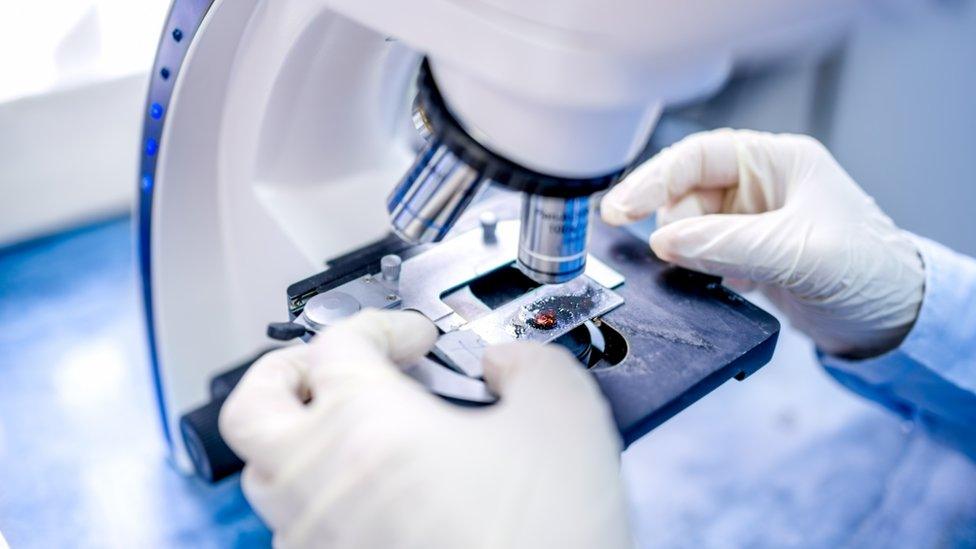
A cancer charity has launched a campaign to encourage women in Wales to get a smear test after figures showed attendance was at a 10-year low.
Figures by Public Health Wales, external showed 204,100 - 77.8% - of women aged 25-64 years were screened in 2015-16, the lowest since 2006-07.
The charity Jo's Cervical Cancer Trust warned more lives will be lost if the number rises.
However, smear testing coverage in Wales is the highest in the UK.
The figures showed about 264,700 women aged 25-64 were invited for screening in 2015-16, meaning 60,600 did not attend.
Jo's Cervical Cancer Trust said this meant one in five women were not receiving the "life-saving test".
The charity is calling on the public to help them raise awareness of cervical screening by getting involved with their #SmearForSmear campaign, external.
It comes ahead of Cervical Cancer Prevention Week, which starts on Sunday.

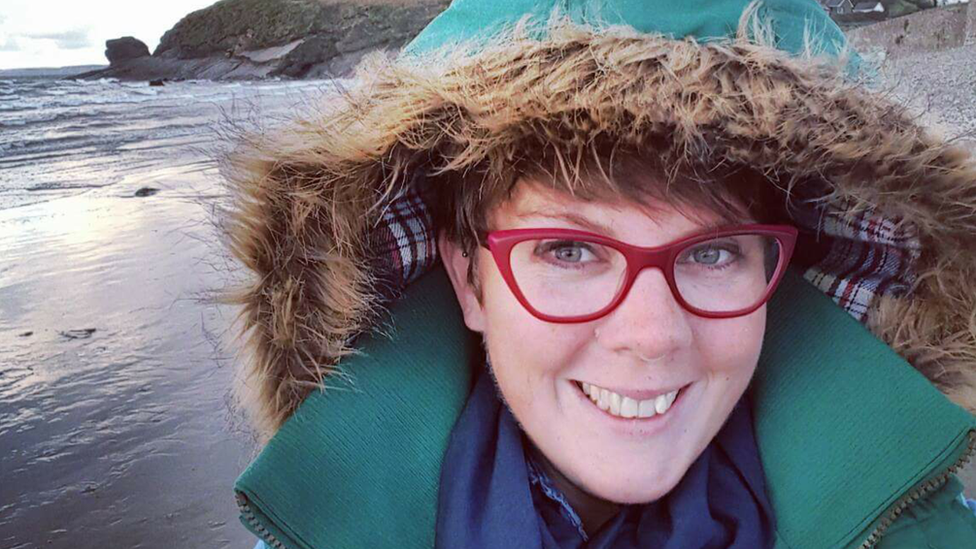
Maria Dullaghan did not tell her son she had been treated for cervical cancer until he was 11 - three years after she was diagnosed
Maria Dullaghan, from Haverfordwest in Pembrokeshire, was 25 when she was diagnosed with cervical cancer after experiencing abnormal bleeding.
"It was a very big shock," she said. "I remember just saying 'ok, ok' for about 20 minutes.
"Having to tell everybody as well, I had to be quite tough because I didn't want to break down every time I told somebody.
"I told all my friends in one job lot and they were all brilliant and supportive - and work kept my job open for me, even though I had only been there for four days."
Mum-of-one Ms Dullaghan, now 31, underwent keyhole surgery and then a hysterectomy, but because of the position of the tumour doctors felt she also needed chemotherapy, radiotherapy and brachytherapy - where radioactive material is inserted into the affected area.
She began this on her 26th birthday in February 2011, and was given the all clear three months later.
"My son was eight at the time, so I didn't use the word 'cancer'," she said.
"I was in an awful lot of pain so we told him I was having an operation to sort out my stomach pain and [during the radiotherapy] that I was being given medicine.
"It wasn't until he was 11 I told him it was cancer."
Ms Dullaghan is keen to encourage women to attend smear tests - despite worries it "might hurt" or fears over the outcome.
"It's five minutes and it does not hurt. It can affect you at any age and if you're going to get bad news, it's going to be bad news," she said.
"People think it's big metal contraptions but it's plastic, it doesn't hurt, and for these nurses it's their job day in day out - don't be embarrassed, they've seen it all."

Robert Music, the charity's chief executive, said: "We have one of the best cervical screening programmes in the world saving approximately 5,000 lives every year.
"However, at a time when the number attending in Wales is at a 10-year low, we need to be seeing increased investment in targeted awareness campaigns to encourage women to take up their invitation for cervical screening.
"Cervical screening prevents 70% of cervical cancers from developing and if we do not prioritise prevention, there will be more women facing the physical and psychological cost of cervical cancer, an increased burden on the NHS and state, and more lives lost."
Dr Rosemary Fox, director of the screening division of Public Health Wales, said it was encouraging eight out of 10 woman do attend for their smears.
"I'd like to encourage the women who have doubts about cervical screening, or find it difficult, not to ignore their screening invitation," she added.
- Published15 January 2017
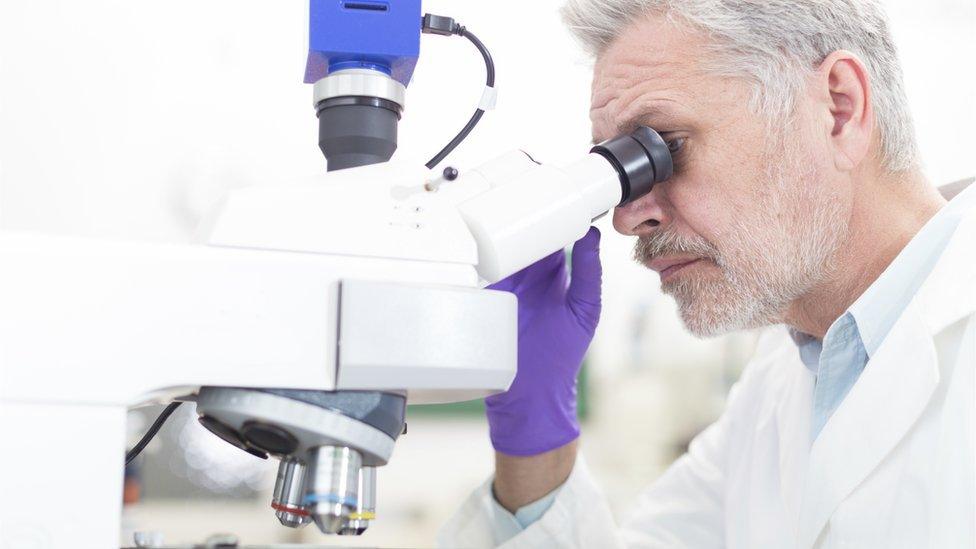
- Published16 June 2015
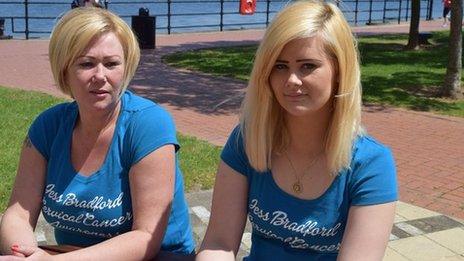
- Published7 June 2012
